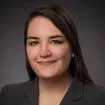- within Coronavirus (COVID-19), Insurance, Government and Public Sector topic(s)
The One Big Beautiful Bill Act (OBBBA) modifies the excise tax on net investment income of private colleges and universities under Internal Revenue Code (IRC) Section 4968. The bill replaces the previous flat 1.4% excise tax (which applied to the net investment income of certain private higher education institutions) to a tiered tax structure. This new structure is based on a school's "student adjusted endowment," which measures investment assets per tuition-paying student. Institutions with student adjusted endowments between $500,000 and $750,000 will remain subject to the 1.4% rate on their endowment income. Those with student adjusted endowments between $750,000 and $2 million will be taxed at 4%, and those exceeding $2 million will be taxed at 8%.
This tax is applicable only to educational institutions with at least 3,000 tuition-paying students (increased from the previous threshold of 500). In addition to the tax rate changes, the OBBBA expands the definition of taxable income for endowment tax purpose to include items that were previously excluded, specifically student loan interest and royalties from certain intellectual property. The OBBBA also imposes new reporting requirements, including disclosure of the number of tuition-paying students and other data relevant to the endowment tax. These changes would be effective January 1, 2026.
Expansion of the Executive Compensation Excise Tax
The OBBBA expands the scope of the excise tax on executive compensation paid to "covered employees" of tax-exempt organizations under IRC Section 4960. The Tax Cuts and Jobs Act of 2017 subjected certain non-profit organizations to a 21% excise tax when "covered employees" of the organization were paid more than $1 million in compensation or received excess parachute payments. A "covered employee" was defined as any of the five highest compensated employees of the organization for the taxable year or the prior year. The definition of "covered employee" is broadened under the OBBBA to include any employee or former employee who was employed and paid over $1 million by the organization in any taxable year beginning December 31, 2026. This changes the number of individuals whose compensation may be subject to the excise tax. The amended provision retains the exception for remuneration paid for medical services.
Scholarship Granting Organizations
Donors who make a donation to a "scholarship granting organization" for the purposes of providing elementary and secondary student scholarships are allowed an income tax credit of up to $1,700. Among other requirements, these organizations must be identified by a state.
Charitable Contribution Deduction Changes
The OBBBA imposes a new 1% floor on charitable deductions claimed by corporations, meaning that no deduction is permitted unless contributions exceed 1% of a corporation's taxable income. Previously, there was no floor in place. The maximum deduction remains the same at 10% of taxable income.
For individuals, the OBBBA reinstates and makes permanent the non-itemizer deduction for cash contributions to qualifying charities, raising the cap to $1,000 for single filers and $2,000 for joint filers. For taxpayers who itemize, the OBBBA introduces a new floor, allowing deductions only to the extent charitable contributions exceed 0.5% of the individual's yearly adjusted gross income (AGI). Additionally, the OBBBA permanently extends the 60% AGI limitation for cash gifts to qualifying charities for taxpayers that itemize.
Private Foundation Tax and Other Proposals
Several proposals affecting tax-exempt organizations were considered during the legislative process but ultimately excluded from the final bill. These include an increase to the net investment income excise tax on private foundations, reinstatement of the "parking tax" on qualified transportation fringe benefits, treatment of name and logo royalties as unrelated business taxable income, and a proposal that would have granted the Department of Treasury broad authority to suspend the tax-exempt status of organizations deemed to support terrorism.
Special thanks to Gina Alteri, a summer associate in Foley's Milwaukee office, for her contributions to this article.
The content of this article is intended to provide a general guide to the subject matter. Specialist advice should be sought about your specific circumstances.



